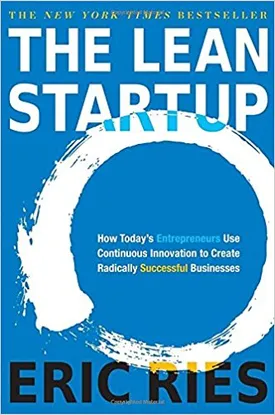The Lean Startup by Eric Ries
The Lean Startup by Eric Ries has become one of the most important books in the field of entrepreneurship. Written in 2011, the book has helped launch a new generation of entrepreneurs and inspired countless others to pursue their dreams of business ownership. Eric Ries offers entrepreneurs a unique approach to startups by introducing the principles of the lean startup.
The lean startup philosophy is a highly iterative approach to business building. Instead of creating a business plan and hoping it works, Ries advocates for constant testing and experimentation to optimize the startup’s return on investment. By breaking up the company’s activities into smaller phases, the entrepreneur can go through each phase one by one, adjusting and adjusting as they go until they hit the right formula. In a sense, it’s a type of trial and error, but on a much larger scale.
One of the most important principles of the lean startup is that the first version of the product should be a minimum viable product (MVP). An MVP is the first version of a startup idea that has enough features to demonstrate its value to potential customers. This allows entrepreneurs to have a basic level of success without investing too much time and money into a full version of the product. MVPs also allow entrepreneurs to launch their product as quickly as possible.
An MVP helps entrepreneurs to gain feedback from the market in order to understand what their customers want and to see if their idea has potential. Thus, the next step in the lean startup method is to continuously measure the impact of the product and gather feedback from users. This helps the entrepreneur learn quickly if their product is working and what changes are necessary.
Another key component of the lean startup method is leveraging customer feedback. This involves getting direct and indirect feedback from users and other sources. Through customer feedback, entrepreneurs can quickly adjust their product and adjust their business plan to stay ahead of trends and meet customer needs.
Eric also emphasizes the importance of building a culture of experimentation and continuous improvement. He advocates for a “fail-fast” approach where the startup pivots quickly after hits and misses, allowing them to get back on track quickly. failure is seen as a learning experience and lessons are used to improve the product and informed the next iteration.
Lastly, the book shows how entrepreneurs can use the lean startup method to grow their company over time. Ries shares a roadmap for scaling up a startup business and tips on how to sustain the long-term development of the business.
In summary, Eric Ries’ book “The Lean Startup” provides a concise yet comprehensive guide for entrepreneurs on using the lean methodology to build a business. The book is a must-read for any entrepreneur looking to try out the lean approach to business building, as it covers all the basics and provides actionable advice on succeeding with the lean startup.

